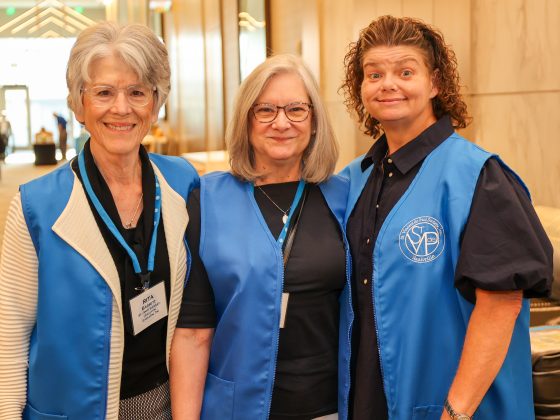The evangelical model of the Home Visit may be likened to the Last Supper, with Christ as the visitor, and the disciples – and ourselves – as the neighbors. Hungry, the disciples greeted Christ, who first demonstrated His love by humbly serving them, washing their feet, then by breaking their bread, and pouring their wine.
And then He prayed for them, that the Father might welcome them as He welcomes His own Son. In a way, we might say that He saw Himself in us, just as we are called to see Him in the neighbor.
On the Home Visit, the first act of evangelization occurs when the neighbors open their door, “because, in them, Vincentians see the face of Christ.” [Manual, 48] The poor are our evangelists, not by their own intent, but by God’s design. They call us, they invite us in.
We, in turn, evangelize first by serving humbly, in the model of our Savior. As St. Vincent instructed the missioners going to serve even the most anti-Catholic people, we seek to be “more reserved in their presence, more humble and devout toward God, and more charitable toward your neighbor so that they may see the beauty and holiness of our religion and be moved to return to it.” [CCD VIII:209]
“The visited, as well as the visitors, edify one another,” as Bl. Frédéric explained, “living in the unity and under the shelter of the mantle of St. Vincent de Paul.” [Baunard, 123]
We evangelize first and always through our “wordless witness.” Each visit, each act of service, is a washing of the feet, which asks the neighbor to receive Christ as servant. When we move to words, they are the words of prayer, offering the needs of the neighbor to God, and asking for His blessings upon them, just as Christ prayed for us to be welcomed into the kingdom.
Jesus calls each of us to take up our cross and follow Him. In the Eucharist he gives us a model to follow. As Mahatma Gandhi once said “There are people in the world so hungry, that God cannot appear to them except in the form of bread.”
Because His love was “inventive to infinity” [CCD XI:131] Jesus becomes the bread that feeds us in the Eucharist. On our Home Visits, we are blessed in turn to share Him with the neighbor in the form of our bread, our time, our service, and ourselves.
Contemplate
In sharing the “bread” of assistance, do I seek always to truly share myself?



